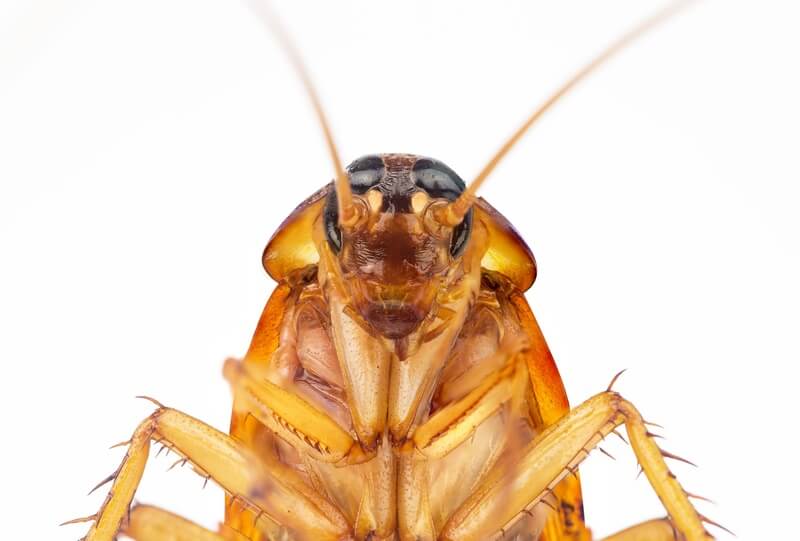Have you ever walked into your kitchen and caught a whiff of something strange and unpleasant? Maybe it’s musty, oily, or just plain gross, but you can’t figure out where it’s coming from. If you’ve been wondering whether that mystery smell could be from cockroaches, you’re asking the right question.
Do cockroaches smell? The short answer is yes, and it’s not a pleasant smell at all. These unwanted house guests leave behind a very distinct odor that gets stronger as their numbers grow. Understanding what cockroaches smell like and why they produce these odors can help you identify an infestation early and take action before it gets worse.
Let’s break down everything you need to know about cockroach smells, from what causes them to how you can get rid of them for good.
Do Cockroaches Smell?
The answer is a definite yes, and most people find the smell pretty disgusting once they know what to look for.
Yes, They Definitely Smell
Do cockroaches smell when they’re alive and moving around your house? Absolutely. These bugs produce a distinct, unpleasant odor that comes from their bodies, waste, and the chemicals they use to communicate with each other. Even a single cockroach can give off a detectable scent, though you might not notice it right away if there’s only one.
The smell gets much stronger with larger infestations. A small infestation might result in just an odd whiff here and there, but when the roach population is larger, you’ll smell it all the time, and much more strongly. This happens because the odors build up from their waste, shed skins, and the natural oils they produce.
- Starts killing roaches within hours and eliminates nests
- Lasts up to 12 months with child-resistant bait stations
- Easy to use, no mess or strong odors
- Targets roaches you see and the hidden ones too
Many people don’t realize they have a cockroach problem until the smell becomes obvious. By then, there are usually quite a few roaches hiding in walls, cabinets, and other dark spaces around the house.
What Do Cockroaches Smell Like?
What do cockroaches smell like is one of the most common questions people have when they suspect these pests in their home.
Common Descriptions
Most people describe the cockroach smell as musty, oily, or even slightly sweet, but in an unpleasant way. It’s often compared to stale oil, rancid grease, or that smell you get from opening an old container of cooking oil that’s gone bad.
Others compare it to musty basements, stale old wood, or even dirty wet dogs mixed with mold. Some people notice a sour smell like spoiled food, while others pick up on an earthy scent similar to damp soil or wet cardboard that’s been sitting around too long.
What do cockroaches smell like to you might be different from what your neighbor smells. Because humans can identify over one trillion different scents, we all perceive certain smells differently. But most people agree that whatever the exact description, it’s definitely not a good smell.
Why They Smell Different to Different People
Your sensitivity to smells plays a big role in how strong the cockroach odor seems to you. Some people can detect even small amounts of the smell, while others need a bigger infestation before they notice anything.
The size of the infestation makes a huge difference too. A few cockroaches might only produce a faint odor that you might mistake for something else, like a damp basement or old food somewhere. But dozens or hundreds of roaches create a smell that’s impossible to ignore.
Location and humidity also change how the smell hits you. In damp areas like bathrooms or basements, the musty odor tends to be stronger and more noticeable.
What Causes the Cockroach Smell?
Understanding why cockroaches smell helps explain why the odor is so persistent and unpleasant.
Body Chemistry
Cockroaches have high concentrations of linoleic and oleic acids, which are responsible for producing a pungent oily substance. These fatty acids create that greasy, rancid smell that many people notice first.
Roaches also use their unpleasant odor to communicate with each other, helping them find food, safe places to live, and breeding opportunities. They release chemicals called pheromones that other cockroaches can detect, but unfortunately, humans can smell these communication signals too.
The natural oils from their bodies add to the overall stench. These oils get on surfaces where they walk, leaving behind that oily, musty smell even after the roaches have moved on.
Their Waste and Dead Bodies
The odor often comes from mold growing on roach waste, which is generally responsible for the “cockroach smell” that people notice. Cockroaches aren’t picky about where they go to the bathroom, so their droppings end up everywhere they travel.
When cockroaches die, they give off a slightly acidic smell caused by the breakdown of fatty acids during decomposition. Some people describe this death smell as a combination of a clogged toilet and soy sauce, which sounds as awful as it actually smells.
Dead roaches also release a chemical called oleic acid as they decompose. This creates a sickening, musty smell that can linger for a long time if the dead roaches aren’t cleaned up quickly.
- Starts killing roaches within hours and eliminates nests
- Lasts up to 12 months with child-resistant bait stations
- Easy to use, no mess or strong odors
- Targets roaches you see and the hidden ones too
Different Types of Cockroaches and Their Smells
Not all cockroaches produce the same intensity of smell, so knowing which type you’re dealing with can help explain why cockroaches smell more in some situations than others.
German Cockroaches
German cockroaches are the most common type found in homes, and they’re also the smallest of the major pest species. German cockroaches are less likely to give off a particular smell compared to other types, but they can still produce a noticeable odor when there are enough of them.
Since German cockroaches reproduce very quickly, even though individual bugs might not smell as strong, you can end up with a big population fast. When that happens, the combined smell from all of them definitely becomes noticeable.
American Cockroaches
American cockroaches are much larger than German cockroaches, and they tend to produce stronger odors. American cockroaches are more likely to give off a particular smell than German cockroaches, and this smell is stronger and more noticeable when the roaches are actively mating.
Their larger size means they produce more of the oily substances and waste that create the bad smells. They also tend to live in damper areas like basements and crawl spaces, where the musty odors can build up and become more concentrated.
Oriental Cockroaches
Oriental cockroaches are known for producing one of the worst smells of all the common cockroach species. These dark, shiny roaches prefer damp, cool areas and are sometimes called “water bugs” because they’re often found near moisture.
Oriental cockroaches produce a musty odor from their secretions, which can be very unpleasant. The combination of their natural body odor and their preference for damp environments creates a particularly strong and offensive smell that’s hard to ignore.
Where You’ll Notice the Smell Most
Knowing where cockroach smells are strongest can help you figure out if that’s what you’re actually dealing with.
Kitchen Areas
Cockroaches are drawn to food sources, so their scent is often stronger near appliances, pantries, and trash bins. Kitchens provide everything roaches need: food crumbs, grease, water, and warm hiding spots behind appliances.
The smell tends to be most noticeable near the stove, refrigerator, and dishwasher, where roaches like to hide during the day. You might also notice it around the trash can or in pantry areas where they can find easy meals.
Even small amounts of grease or food crumbs can attract cockroaches and make their populations grow, which means more smell in your kitchen over time.
Bathrooms
Roaches are drawn to moisture, so their odor may be noticeable near sinks, drains, or in cabinets. Bathrooms provide the water that cockroaches need to survive, plus plenty of dark hiding spots in cabinets and behind fixtures.
The humidity in bathrooms can make cockroach smells more intense and longer lasting. You might notice the musty odor most strongly when you open bathroom cabinets or near areas where pipes enter the walls.
Cockroaches often travel through drain pipes, so sometimes the smell seems to come from the drains themselves, though it’s actually from the roaches living in or around the plumbing.
Basements and Dark Spaces
Poor ventilation in basements, crawl spaces, and storage areas lets cockroach smells build up and become more concentrated. These areas are also common hiding spots for large populations of roaches, especially American and Oriental cockroaches.
The smell is particularly noticeable in spaces where dampness thrives, like basements or crawl spaces, where moisture creates perfect conditions for both cockroaches and the mold that can grow on their waste.
You might also notice strong odors coming from wall voids, behind large appliances that don’t get moved often, or in storage areas where boxes and clutter provide lots of hiding spots.
How to Get Rid of Cockroach Smell
Getting rid of the smell means dealing with both the roaches themselves and cleaning up what they’ve left behind.
Eliminate the Source First
To eliminate the foul cockroach smell, you must first eliminate the source. This means getting rid of the live cockroaches and preventing new ones from moving in.
No amount of cleaning or air freshening will solve the problem permanently if cockroaches are still living in your house and creating new odors every day. You’ll need to use baits, traps, or professional pest control to deal with the roach population first.
Remove any dead roaches as soon as you find them and clean the area to ensure other roaches don’t follow their scent trails. Dead roaches not only smell bad themselves, but they can also attract more roaches to the area.
Deep Cleaning Steps
Focus on scrubbing kitchens, bathrooms, and other infested spaces using warm, soapy water and disinfectant. Pay special attention to cracks, crevices, and hidden areas where roaches may have nested.
Use a vacuum to remove roach droppings, shed skins, and other debris from floors, cabinets, and corners. Make sure to vacuum behind appliances and in other areas where you can’t easily see.
Use a degreasing cleaner to break down the oily residue that cockroaches leave behind. Regular dish soap works well for this because it cuts through grease and oils just like it does on dirty dishes. Spray or wipe down all surfaces where you’ve seen signs of roaches.
Natural Odor Removal
Baking soda, white vinegar, or activated charcoal can help neutralize odors. Place these items in small bowls near affected areas to absorb lingering smells.
Sprinkle baking soda on carpets and upholstery, let it sit for several hours, then vacuum it up. The baking soda will absorb odors trapped in the fabric.
Open windows to air out musty spaces, and consider using an air purifier to help eliminate odor particles in the air. Good ventilation helps prevent odors from building up and makes your cleaning efforts more effective.
Final Thoughts
Do cockroaches smell? Yes, they definitely do, and it’s one of the most reliable ways to detect an infestation before it gets out of hand. The musty, oily, unpleasant odor that cockroaches produce gets stronger as their numbers grow, so catching the smell early can save you a lot of trouble later.
Remember that different types of cockroaches produce different intensities of smell, with Oriental cockroaches being the worst and German cockroaches being somewhat milder. But any persistent, musty odor that doesn’t go away with normal cleaning could be a sign that cockroaches smell because they’re living somewhere in your home.
The key to getting rid of cockroach smells is dealing with the roaches themselves first, then doing a thorough deep cleaning to remove the waste and oils they’ve left behind. With the right approach, you can eliminate both the pests and their unpleasant odors, leaving your home smelling fresh and clean again.

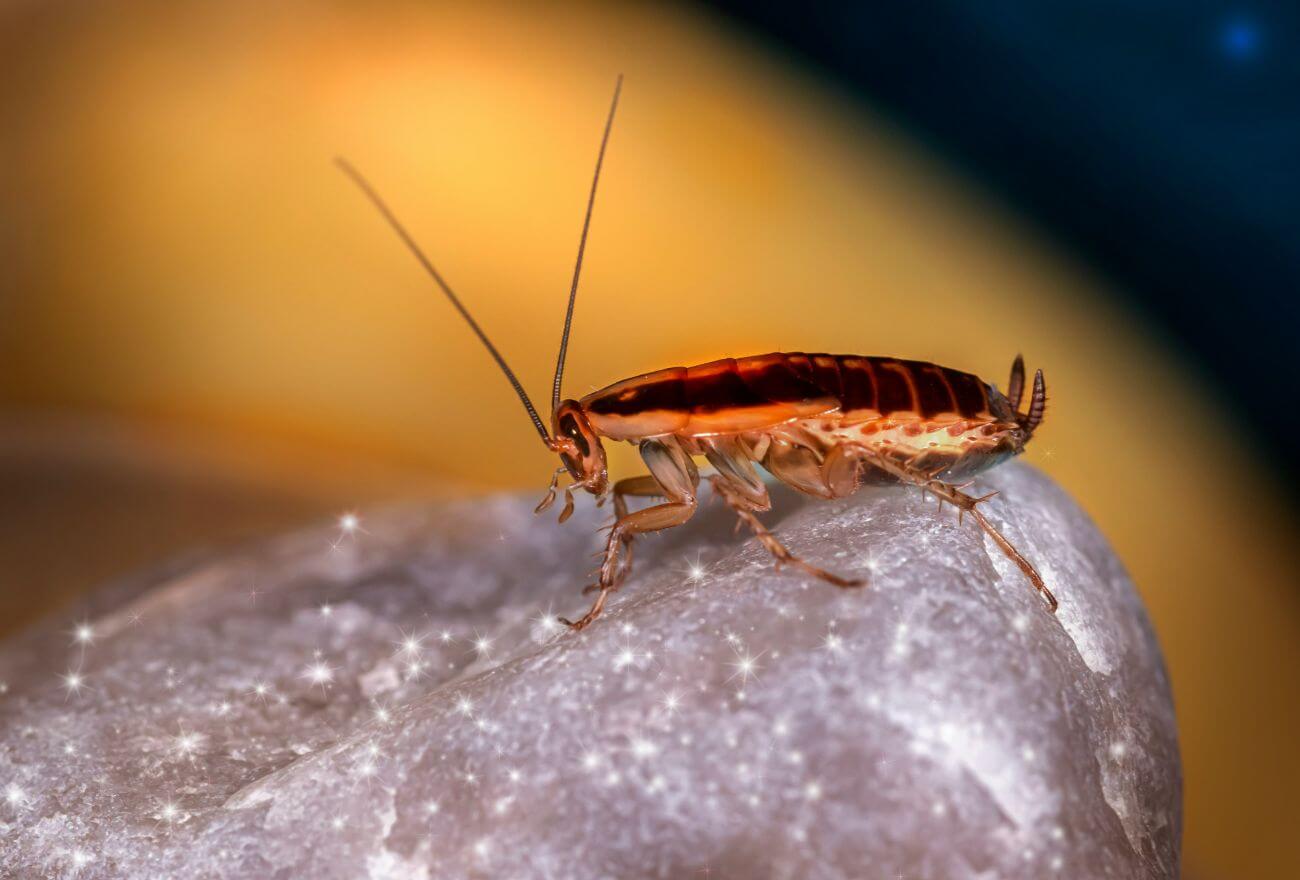

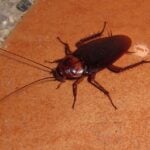




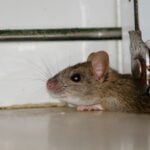

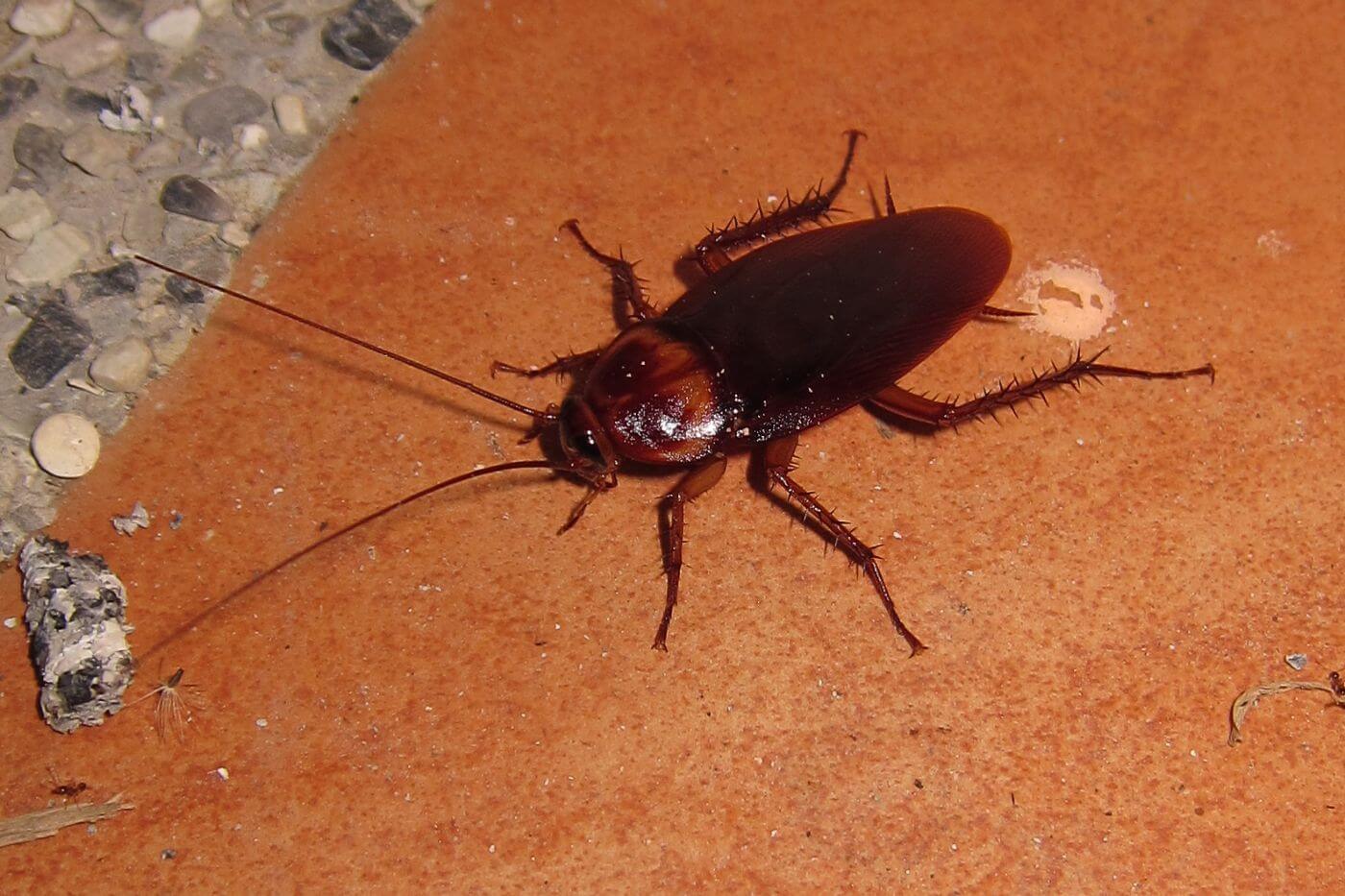
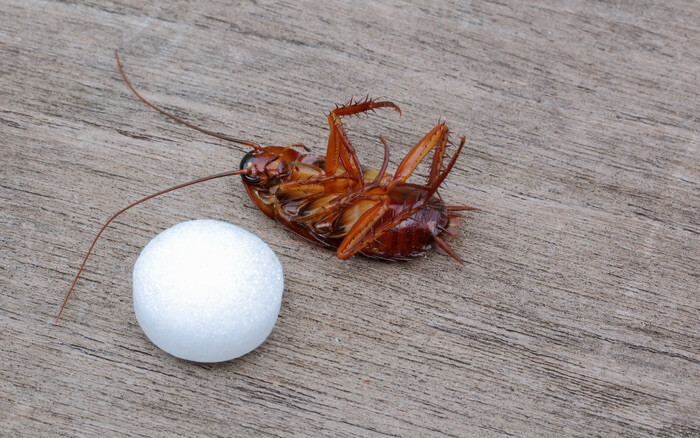
![I Saw One Cockroach. Should I Be Worried? [Answered] 23 One found cockroach by itself](https://www.bcpestcontrol.com/wp-content/uploads/2021/05/one-found-cockroach.jpg)
